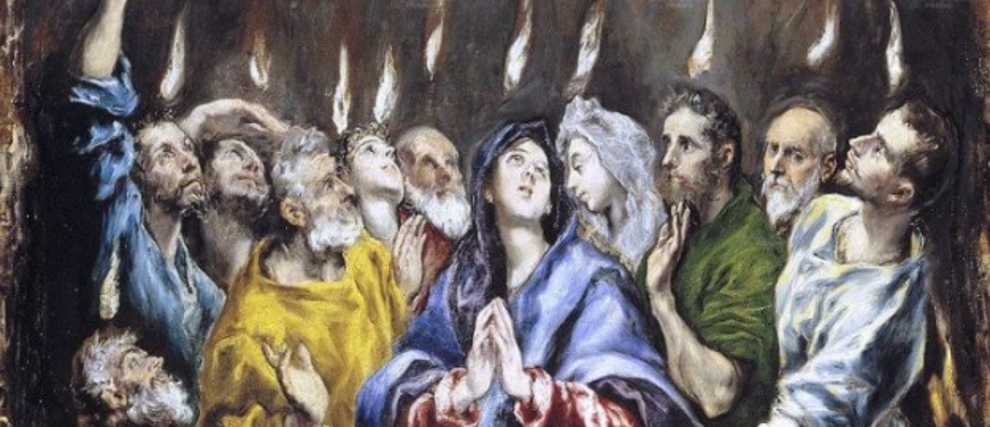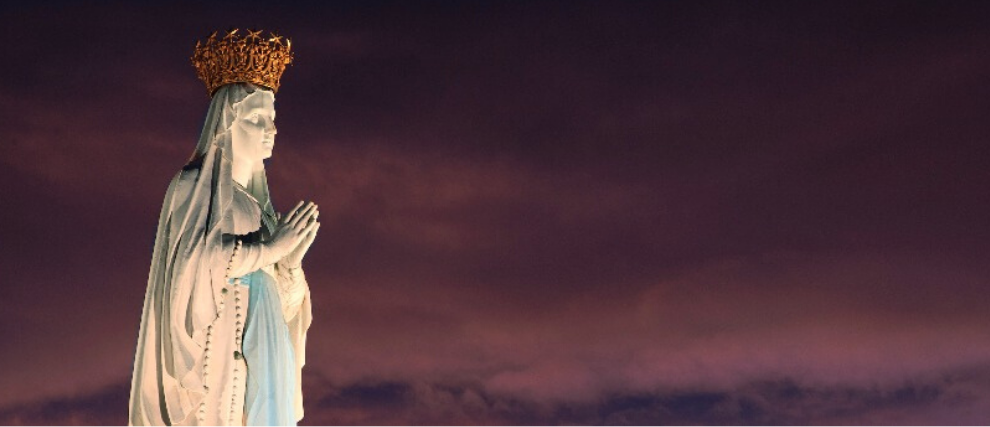Saint Angela of Foligno
Coming from a wealthy family, Angèle de Foligno was born in 1248 in Foligno, near Assisi in Umbria, Italy. Orphaned by her father, she was educated by her mother. She experienced the worldly circles of Foligno: it was there that she met and married a man at the age of 20 with whom she had several sons. During this time, her life was linked to pleasure. One day, while confessing, she received a vision of Francis of Assisi. Her life would change, and she experienced a true conversion. In 1291, she committed, as a lay member, to the Franciscan Third Order. From then on, she immersed herself even more in prayer, and she had mystical experiences seeing Christ several times.
She died in 1309 and was beatified on July 11, 1701 by Pope Clement XI, then canonized on October 9, 2013 by Pope Francis. She is celebrated every year by the Church on January 4. Let's meet Saint Angela of Foligno, this great mystic: let's discover her life, her influence, and what she can still tell us today. At the end of this read on Angela of Foligno, we invite you to discover other models of holiness in the Hozana saints guide.
What can we learn from Saint Angela of Foligno?
Saint Angela of Foligno, a dazzling conversion
Angela’s is a story of a sudden conversion. One day, she decided to confess. However, she had so many sins that she did not dare to confess them all. She took communion, but felt bad because she saw it as sacrilege since she had hidden several sins during her confession. As a result, she had a vision of Francis of Assisi. Following this, she notably decided to make a general confession. After that, her life changed drastically as she truly decided to follow Christ. After this vision, she completely changed by practicing mortifications, giving her money, and dedicating many hours to prayer. It was then that those around her thought she was crazy. In 1288, at the age of 40, following the death of her husband and children, she experienced an even deeper conversion and realized that she had neglected God and the sacraments too much in the past. Three years later, in 1291, she was admitted, as a tertiary, to the Franciscan Third Order. From then on, she immersed herself even more in prayer, and she had mystical experiences, seeing visions of the crucified Christ several times. Angela will try to put words to her conversion. This is how in her book, called “The Book of Angela of Foligno,” she will recount in the first 18 chapters, 18 stages she went through to reach the conversion: realization of sins, confession, personal encounter with Jesus Christ, etc.
What can Saint Angela of Foligno bring us today?
It is only with God that life becomes true life
“Only with God does life become true life”, as Pope Benedict XVI said on October 13, 2010 during a general audience dedicated to Blessed Angela of Foligno.
The Pope said: “it is only with God that life becomes true life, for it becomes, in pain for sin, love and joy. Blessed Angela speaks to us like this. These days, we will all be in danger of living as if God did not exist: it seems so far removed from today's life. But God has a thousand ways, one for each person, of being present in the soul, of showing that He exists, knows me, and loves me. And the blessed Angela wants to make us attentive to these signs with which the Lord touches our soul. Comment: having had a worldly life, Angela experienced like others, that the “things of the world” did not fill her. She came to the conclusion, like other Saints, that living and cultivating a personal encounter with Christ fully fills the human heart.
“I have come that they may have life, and have it to the full” (John 10:10).
During this audience dedicated to the Saint, the Pope added that true happiness is found in friendship with Christ: “May Blessed Angela of Foligno help us to understand that true happiness is found in friendship with Christ, crucified out of love for us”.
To deepen your knowledge of Angela of Foligno
Works
Below is a book that can allow you to deepen your knowledge:
· Angela of Foligno, The Book of Visions and Instructions
Praying to Angela of Foligno
Prayer of Saint Angela of Foligno “O my most sweet Master, give me the intelligence of Your seven Gifts”:
“O my very sweet Master, grant me the intelligence of Your seven Gifts, worthy of being distinguished among the multitude of Your other Gifts.
The First is your ineffable Creation; the second is this admirable Election that You have deigned to make of us to share your Glory.
The Third is the Sacrifice that You made of your only Son to give us Life.
The Fourth is the Privilege that I hold from your Goodness to be sentient and reasonable, when You were able to make me insentient and unreasonable. Now, this admirable Reason with which it pleased You to endow me provides me with three great advantages: to know You, to know my faults, to be able to resist this sensory appetite that inclines me so strongly to sin. O incomprehensible! I see nothing above this Gift that You have bestowed upon us by clothing us in your Light; for it is through this that we truly are your Images.
The Fifth Gift is that of Intelligence. Make it so, Lord, that we may use it to know You ever more perfectly.
The Sixth is Wisdom: O Lord, surely of all your Gifts the most admirable, for it is this that allows us to know You in Truth, and in knowing You, to savor You.
The Seventh is Love which makes us like unto angels; for all the happiness of these blessed spirits is to contemplate You, to love You, to see You loved. O Gift above all gifts, because You Yourself are Love and all Love! O sovereign Good! You have deigned to make us know your Love, in order to be loved by You. Such is your Will concerning men: therefore, when they shall be called to appear before You, they shall be rewarded according to how much they have loved You. O supremely admirable God! What Wonders You work in Your children! O supreme Good, O incomprehensible Goodness and most ardent Charity! But the greatest Wonder of Your Love towards them is that You have deigned to associate them with your Substance, or rather introduce them into your Substance. O admirable Secret, all other secrets are nothing compared to this one.” So be it.
Continue to develop your friendship with Christ with Hozana
· Discover other communities to pray with the Saints
· Discover our communities to pray regularly

